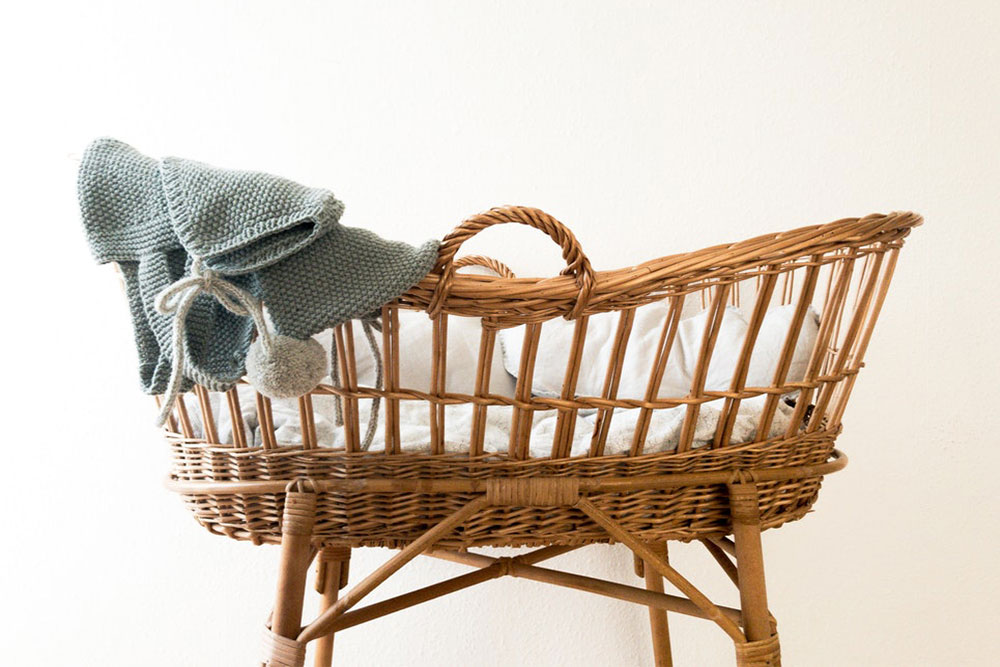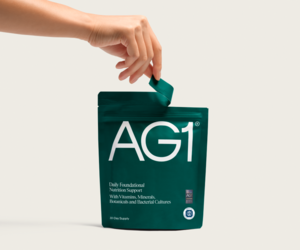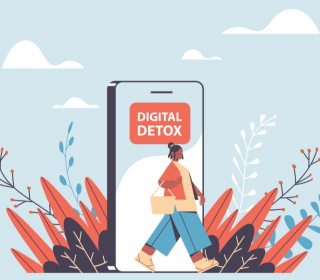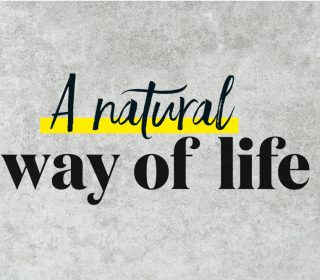Baby talk: how late is too late to have a baby?

It’s offish: women are leaving it later and later to have their babes, with ONS research putting the average age of first-time mothers at 32.
And it’s easy to see why, with careers often taking priority over parenthood and women (quite bloody rightly!) feeling they can have it all. But, ever the fun sponge, biology is still behind the times, with our prime fertility still hitting in the early twenties.
It goes without saying that if you just don’t think children are your thing and you want to focus on other things, that is a-okay.
We spoke to leading fertility expert Zita West to get a clearer picture about when to have a baby, including peak fertility and factors that can have an affect on a couple’s chance of conceiving:
WHAT’S THE BEST AGE TO HAVE A BABY FOR A WOMAN?
‘In short, the younger you are, the better chances you have. But the reality is more and more women are choosing to have babies later in life, for a number of valid reasons; they’re concerned about their financial situation, they’re not feeling ready, they haven’t found the right partner or they’ve just come out of a long-term relationship.
Whether you want to start a family in your 20s, 30s or 40s, it’s important to be knowledgeable about what is going on in your body as early as possible. Today’s women have often been on the pill for 10 years or more, so have no idea about their natural cycles.
Women differ biologically and we can now check the fertility status of a women by checking egg reserves via a blood test and a scan. Some women are more fortunate than others when it comes to egg reserves; some older women have good reserves while some younger women don’t, but the younger you are the better the quality of the eggs.
If you want to have a baby and feel it’s the right time, it’s best to start as soon as you can, regardless of age. It can take on average eight months to conceive and miscarriage is common for first pregnancies, which means you have to pick yourself up and try again, so it can often take up to a year. Keeping these delays in mind are really important, especially if you want more than one child.
It is important to understand that fertility doesn’t drop of a cliff when you turn 35, so you mustn’t believe the hype. Everyone is different and some women will have better fertility than others for their age.
One of the useful things to find out is what age your mother had her last period. Subtract 10 years from your mother’s menopausal age and that will give you a very rough guide to when your fertility may be seriously compromised.
WHAT’S THE BEST AGE TO HAVE A BABY FOR A MAN?
‘Although sperm count and quality does diminish over time, the good news for men is they will continue to produce it 24 hours a day, seven days a week, regardless of their age.
Fertility is far from a female-only issue, however, and we now know that up to 50% of all cases are associated with a male factor. That figure surprises many, because through generations we’ve been led to believe fertility is all about women.
Falling sperm counts and the rise in male fertility problems has led to an increased interest in the nutritional and environmental factors that influence the development and quality of sperm. Poor nutrition, exposure to pollutants and toxins, recreational drugs and medications, plus general lifestyle factors such as stress all play their part in affecting sperm count, motility and morphology (shape).’
WHAT FACTORS CAN DECREASE THE LIKELIHOOD OF GETTING PREGNANT?
‘There are a whole host of factors to take into consideration: age; lack of sex; underlying medical issues such as blocked tubes, not ovulating or poor sperm health; stress; being under or overweight; lack of energy and not sleeping; and lifestyle, including caffeine, alcohol, recreational drugs, smoking or painkillers.’
WHEN DOES IT START BECOMING HARD(ER) TO GET PREGNANT?
‘We know on average there is a 20%-25% chance in each month of getting pregnant and, while there are statistics for certain ages, these can be negative and end up masking any truths behind each woman’s individual situation.
These figures can, understandably, make women nervous and can be seen as unhelpful scaremongering — especially to a women who is single and hasn’t got a partner in her 30s.
A woman who is trying to have a baby wants to feel she is doing everything she can, so it not just about stats. It’s looking at how long she has been trying, how often she is having sex, whether she is targeting her fertile time and looking at her lifestyle, including diet, nutrition, mindset and nutrient stores. Again, every women is different but, the older you get, the more chance of underlying issues occurring due to age.’
WHAT ARE THE DOWNSIDES OF GETTING PREGNANT LATER?
‘Many women, at 40, have good pregnancies, but there is more of a chance of developing gestational diabetes, pre-eclampsia, high blood pressure, placenta previa (low-lying placenta) and placental abruption (where the placenta comes away from the wall of the uterus).’
HOW LONG SHOULD SOMEONE ALLOW TO GET PREGNANT AFTER STOPPING CONTRACEPTION?
‘Most women are on ‘the pill’ for 10 years or more and, while some will come off and wait as they want to ‘get it out of their system’, it’s best to try as soon as you stop taking it as one can be more fertile straight after. It can take seven to nine months for some women to reestablish their cycles but, if they don’t come back after this, you need to seek help.
Be conscious that even for the most fertile women, conceiving usually takes several months — especially if you’re feeling stressed.
The good news is, according to the NHS, more than 80% of couples will conceive within one year if you have sex regularly (every two or three days) without contraception. Of those who don’t in the first year, about half will do so in the second year.
But a year can feel like a long time when you’re trying to make a baby and the stress can take its toll, so it’s important to have realistic expectations of how long it might take to get pregnant, because many think it will happen sooner.’
HOW LONG SHOULD YOU KEEP TRYING UNTIL YOU SEEK HELP?
‘It’s always hard when you are trying month after month for a baby and it isn’t happening. In fact, it can be a case of impatience to conceive rather than an inability to conceive. Though couples can be keen to rush down a route of IVF, it’s not needed.
There are two key things to focus on; that they’re really trying (a.k.a having lots of sex)) and their age. This determines whether to carry on trying naturally or they need assistance which can help with a plan of action; a time frame and any helpful changes to mindset and lifestyle.
For example, if a woman is 35 and has been trying for over six months to a year, and having lots of sex, then it is important to seek help sooner rather than later to ensure the whole range of factors have been looked at. The aim of a fertility clinic is to help couples conceive naturally but, even if you are going down the assisted route, it’s important to have ticked every box, including health, nutrition, lifestyle, wellbeing, relationships, stress, work-life balance, and looked outside the box too.
Fertility plans can also be integrated with therapies, such as acupuncture, nutrition, counseling or hypnotherapy.’
HOW MUCH SHOULD ONE BE EARNING BEFORE HAVING A BABY?
‘Often women in their mid-thirties plan to wait a year or two before they start trying, as they are waiting for the right job or a pay rise. However, instead of prioritising finances, it is important to make a rational decision about how many children you want, while understanding the potential delays and pitfalls.
Although there are a lot of tests now that can help gauge fertility, it’s not black and white. In fact, the hard thing is there are so many shades of grey. It’s important to look back and know you’ve done everything you possibly can. It’s not about being 100% ready to have a baby, it’s about having no regrets.’












